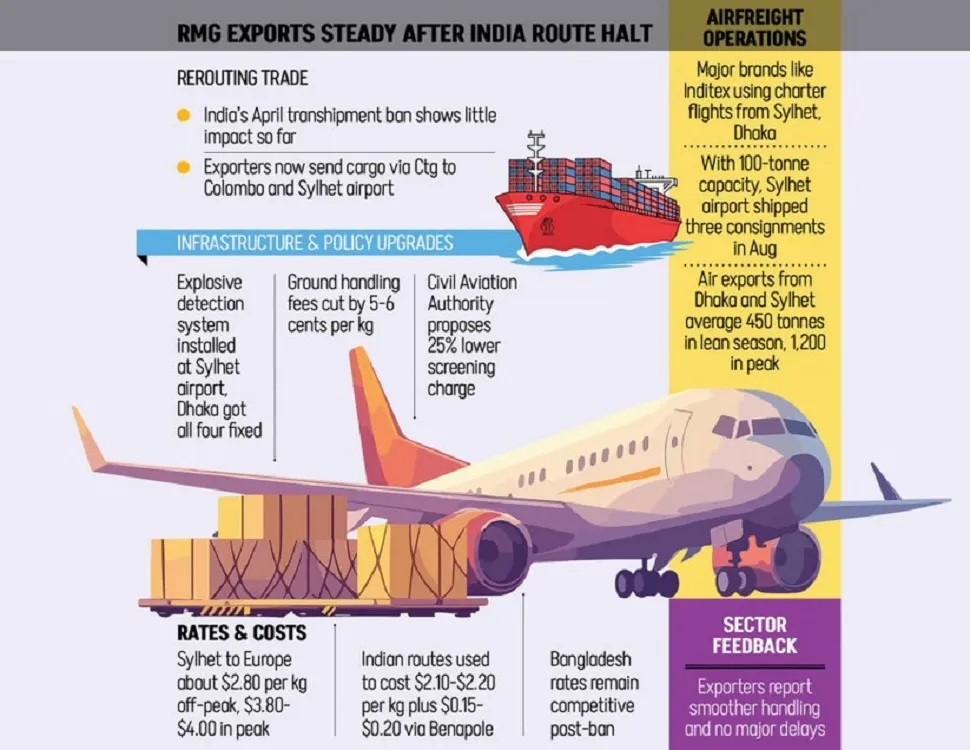


After the suspension of the transshipment in April, the government installed an explosive detection system (EDS) at Sylhet Airport to screen cargo bound for Europe.Garment exports to Europe have remained largely unaffected by India's suspension of transshipment through its airports, as Bangladeshi exporters adapt by using alternative routes and improved facilities at home.
Exporters said that since India halted the transshipment facility in April this year, most of them now send goods by sea from Chattogram port to Colombo in Sri Lanka. Bangladeshi exporters usually use Singapore port and Penang port in Malaysia, where feeder vessels from Chattogram feed mother vessels. Otherwise, mother vessels carry goods directly from Colombo to their destinations.
Between January and March this year, about 34,900 ton of garments worth $462 million were shipped to 36 countries through Indian airports, according to BGMEA. Exporters estimate that goods worth around $2 billion were sent through India annually before the suspension.
Immediate past president of the Bangladesh Freight Forwarders Association (BAFFA), said screening facilities had improved at both Dhaka and Sylhet airports following the transshipment suspension.
A European buyer’s who sources billions of dollars, worth of garments from Bangladesh said air shipment facilities had "improved a lot because of alternative routes such as Sylhet and Chattogram airports".
Adviser Sk Bashir Uddin said the government was ready to approach other international operators if the Japanese consortium declined to take over management of the new terminal.Mr. Adviser credited the government's quick installation of new screening systems for the progress.
Although top CAAB officials had earlier said the third terminal at Dhaka airport would open by December’25 that now seems unlikely.
Comment